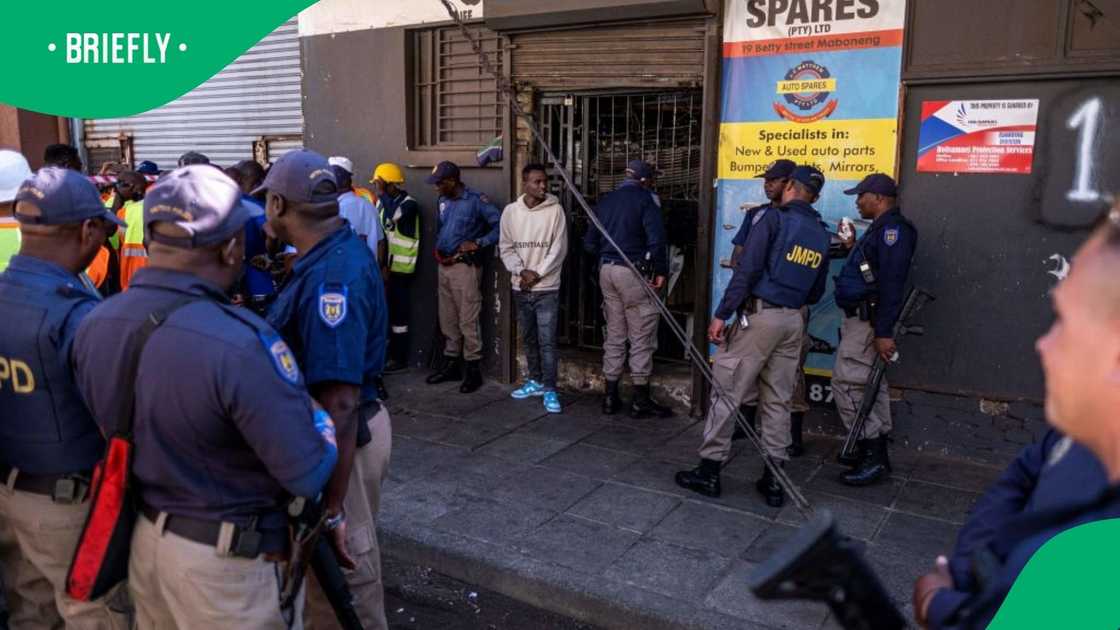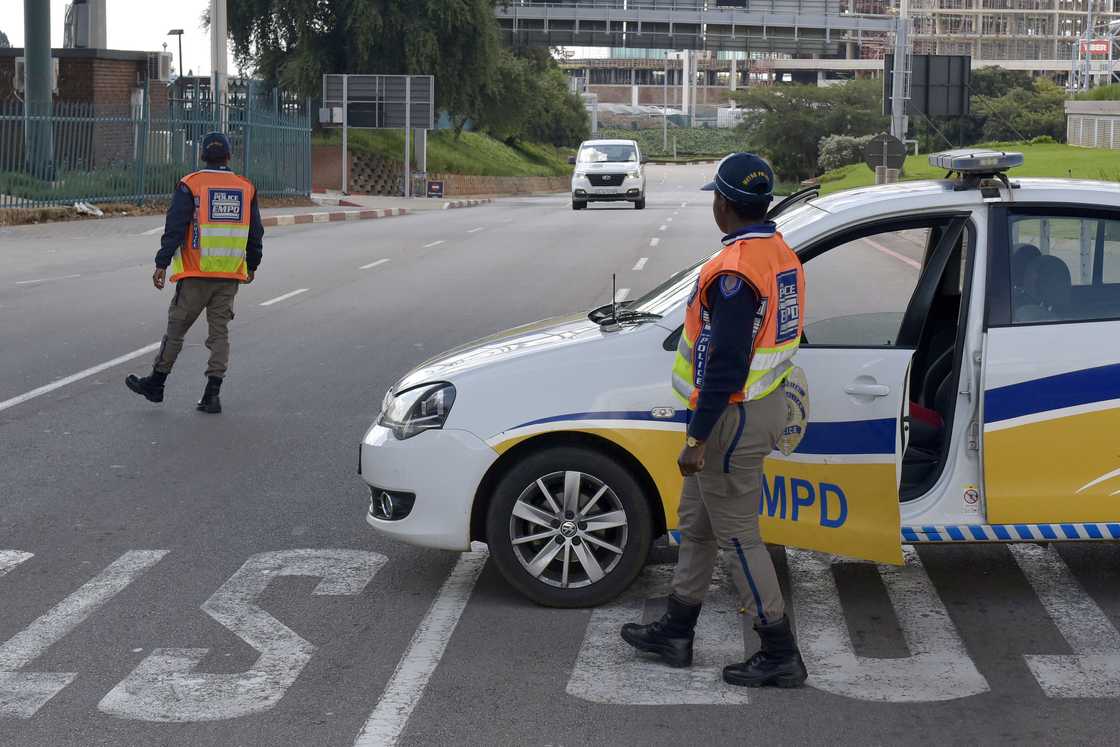Municipal Police Services To Be Given More Power To Enforce Immigration Laws, Mzansi Discusses
- The South African Police Service is proposing changes South African legislature that would give municipal police services more powers to tackle immigration issues
- The changes could give Metro police officers more powers to demand that an immigrant reveal their identity
- South Africans were happy that they would be given more powers, and some questioned the decision
Tebogo Mokwena, a Briefly News current affairs journalist based in Johannesburg, South Africa, has covered policy changes, cabinet reshuffles, the State of the Nation Address, Parliamentary Proceedings, and politician-related news, as well as elections, at Daily Sun and Vutivi Business News for over seven years.

Source: Getty Images
JOHANNESBURG — The South African Police Service (SAPS) is making submissions to empower municipal police services, including metro police officers, to enforce the Immigration Act. If successful, metro cops could also assist in the regulation of the sale of second-hand goods.
SAPS submits legislation change proposals
According to IOL, SAPS wants the proposed revisions to confer powers that SAPS officers possess. This would enable the metro police to enforce the Immigration Act. Metro Police officers would be able to ask a suspected illegal immigrant for documentation. If the officer deems that the individual does not have the necessary paperwork, the officer can detain the individual without a warrant.
PAY ATTENTION: stay informed and follow us on Google News!
The amendment proposal also empowers the municipal police officers to conduct routine inspections and demand registration certificates for those selling second-hand goods.
If the proprietor of the business cannot produce documentation to prove that they have the right to possess second-hand goods on their premises, the municipal police would have the power to seize the second-hand goods and seal the premises.

Source: Getty Images
Laws signed recently
In January 2025, President Cyril Ramaphosa signed the Expropriation Bill into law. The signing sparked a furious debate about how the state would expropriate land and whether it would expropriate without compensation.
New labour legislation that the government gazetted in March stated that South Africans who earned more than R21,812.37 would no longer be covered by the country's labour legislation. Employees with labour-related issues are advised to approach the Commission for Conciliation, Mediation and Arbitration for mediation.
What did South Africans say?

Read also
COGTA Minister Velenkosini Hlabisa cautions motorists not to drive in the upcoming snowy weather
Netizens discussing the proposed changes on IOL's Facebook post shared their opinions.
Sunjay Thirboan said:
"Great news. All second-hand spare parts and pawn shops as well as second-hand spare shops in Johannesburg."
Philippe Sydney Lionnet said:
"Make them literate first so that they can complete a statement to be presented before a court."
Sip's AI Cind said:
"This was needed a long time ago!"
Xolani Mlaba said:
"I will believe that the day metro police KZN takes control of South Beach in Durban."
Codnell Makaringe said:
"Maybe we can finally win the war on bandalism, car theft, and hijackings."
Cyril Ramaphosa signs BELA Act into law
In a related article, Briefly News reported that Ramaphosa signed the Basic Education Amendment Laws Act into law in December 2024. This was despite opposition from the Democratic Alliance and civil society groups.
Ramaphosa tasked Basic Education Minister Siviwe Gwarube to implement the law. Gwarube was not present when Ramaphosa signed the Act into law.
Source: Briefly News


